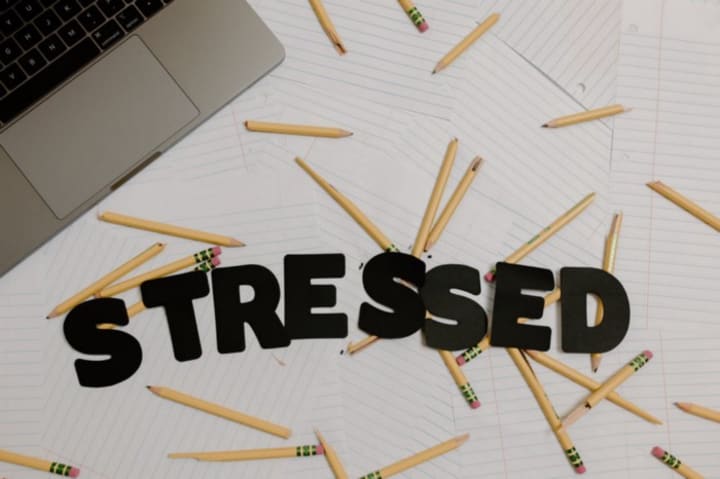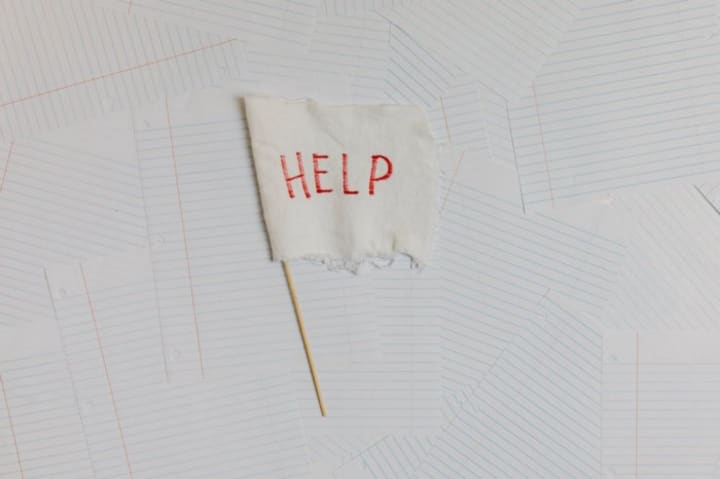
Before I go any further, a bit of background is in order: I have Post Traumatic Stress. I have had Post-Traumatic Stress since 1967, although I didn’t realize it until much later. My first counseling session didn’t happen until 1980.
This article is not about the details of what caused my post-traumatic stress. It was brought about by a variety of both life events, plus physical and emotional traumas I sustained while I served in the Army.
Today, my focus is devoted to showing others suffering from PTS the coping skills I learned and now use daily, to control what’s going on inside my brain. By repeating these techniques every single day, I can control my reactions to whatever incidents flood my mind at any moment.
After reliving, over and over again, so many terrible events that have happened and what I witnessed, what could I possibly hope to accomplish by writing about them, especially so many years after they occurred?
I hope to show other sufferers how they can achieve more peace, self-awareness, and acceptance of who they are and what they can become by sharing my relief tactics, as well as how I got to this place.
No Stigma, No Shame, No Embarrassment
Why so long between what happened and when I sought help? I thought I had to "man up" and try to keep it under control. What a crock that was!
Another bit of information for you: I do not look at myself as ‘disabled.’ I also don’t believe I have a mental illness. I have zero shame or embarrassment about needing help. Whether or not we want to admit it, every single human being living here on earth either will need or has needed help from time to time.
Society must be re-educated, to completely dissolve the stigma surrounding any and all mental health issues. There is no embarrassment or shame in seeking help for any medical condition. It is well beyond time to dispose of this misnomer once and for all.
Instead of calling this ailment PTSD (for disorder), I believe it should be called ‘PTSS, Post-Traumatic Stress Syndrome.’
A syndrome is defined as "a group of symptoms which consistently occur together, or a condition characterized by a set of associated symptoms."
That is a more finite description than "disorder." No matter what triggering event(s) occurred, anyone struggling with PTS has to prepare to deal with the fallout every single day.
It… never… goes… away!
Just as you might wiggle your toes and stretch before getting out of bed, you must re-establish your inner balance and adjust your focus.
You also must regain enough strength to move your arms and legs, so you can ambulate!
Creatures of habit that we are, I must do those exact same movements. But, because of PTS, I have to add one more step, Every day I have to re-establish what I call my "trust zone."
Think of it like this: If you meet someone new, you automatically build a wall of safety around yourself and your inner thoughts. You need to find out much more about this new person before you can share your inner-most secrets. Until you do, your "trust zone" will be relatively small. It will only be expanded once you have built a layer of safety with that person.
No matter how it happened or how many counseling sessions you attend, or the techniques you may be given to manage the symptoms, no one can put your stressors completely out of your mind. Why? Because they happened! Our memories aren’t like a chalkboard that can be wiped clean so we can start anew.
That is why Social Workers, Psychologists, and Psychiatrists, or anyone else who treats victims, can only hope to help us identify specific actions that can be taken to help manage our Post-Traumatic Stress. They can treat the symptoms, but there is no cure!
According to the American Psychiatric Association, ‘Symptoms of PTSD fall into four categories. Specific symptoms can vary in severity:
Intrusion: Intrusive thoughts such as repeated, involuntary memories; distressing dreams; or flashbacks of the traumatic event. Flashbacks may be so vivid that people feel they are re-living the traumatic experience or seeing it before their eyes.
Avoidance: Avoiding reminders of the traumatic event may include avoiding people, places, activities, objects, and situations that may trigger distressing memories. People may try to avoid remembering or thinking about the traumatic event. They may resist talking about what happened or how they feel about it.
Alterations in cognition and mood: Inability to remember important aspects of the traumatic event, negative thoughts and feelings leading to ongoing and distorted beliefs about oneself or others (e.g., ‘I am bad. No one can be trusted’); distorted thoughts about the cause or consequences of the event leading to wrongly blaming self or other; ongoing fear, horror, anger, guilt or shame; much less interest in activities previously enjoyed; feeling detached or estranged from others; or being unable to experience positive emotions (a void of happiness or satisfaction).
Alterations in arousal and reactivation: Arousal and reactive symptoms may include being irritable and having angry outbursts; behaving recklessly or in a self-destructive way; being overly watchful of one’s surroundings in a suspecting way; being easily startled, or having problems concentrating or sleeping.’
Symptom Management
Let’s start with how I have managed to incorporate subtle changes in my habits to help me keep control of my emotions:
I WRITE ABOUT IT — I once had a very wise Clinical Psychologist who suggested I write about every minute detail I could remember about all the stressor incident(s). Writing, she said, is helpful because, as you put your thoughts on paper, you will remember some details that you may have shoved to the very back of your mind, ostensibly to keep from having to deal with them.
When you write, it is always best to start with a blank sheet of paper. By that, I mean you should take your time, slow down your thoughts, and think about what you are about to write, how it affected you, together with why it affected you.
No one can put your stressors completely out of your mind. Why? Because they happened! Don’t leave out any details, no matter how small or insignificant they may be in your mind.
As you remember more and more of these, ask yourself:
How did you respond to the stressors?
Could you have kept yourself in control of the stressors by reacting any differently?
What would make you feel better, perhaps more able to cope with them throughout your daily routine?

Write down all the stresses you deal with, whether or not they are related to any part of the ever-present stressor incident(s). Why?
Because they may be a trigger to help you remember a certain event, a reaction, a smell, a sight, or some other so-called insignificant detail that may have happened in other incidents in your life.
You’ve been living with all these details in the back of your mind, and you will continue to live with them as long as you’re alive. They aren’t going away!
Who knows if they’ve been interfering with your psyche? You can’t manage something if you can’t identify it. You can only try to placate it and hope it doesn’t rear its ugly head too often.
A perfect example of this, for me and many veterans of war, is the sound of helicopter blades chopping through the wind.
Many a veteran has ridden in ‘choppers’ or loaded wounded friends onto one or unloaded supplies of food, water, ammo, and received letters from home.
The same holds true for anyone who has endured or suffered through a trauma. There are details you might recall just by talking with someone close to you as you are going through whatever event caused it.
I calm myself as much as possible, then I start to think about the incident that caused me harm, trauma, or stress. I write about how it made me feel, and I try to remember even the smallest of details.
By drawing these facts out into the light of day, I deal with them more effectively. Try it for yourself! You will be able to break down these details from a different perspective and at a different age from when they first occurred.
MEDITATION — Another counselor friend of mine had tried to get me to open up about one specific event that happened, but I couldn’t. Together, we were stuck on this one incident for nearly six months.
It wasn’t because I didn’t want to open up, but rather, because I couldn’t remember all the details. It was then that he referred me to a Psychologist, someone better trained to help me identify the roadblocks that were keeping me from remembering.
She fast became a friend, one that I could trust, implicitly. For someone who has endured PTS, that is not a light statement, I know. It takes a great deal of time to get to a point where I can trust someone and be completely open with them. She helped me re-frame the caution I had by rationalizing with me.
Her: "Why are you here?"
Me: " need help, so I can be a better husband and father."
Her: "Do you think of me as a counselor, or as a friend?"
Me: "Counselor."
Her: "I am both! I want you to know I care about your well-being, and nothing you and I say to each other will ever leave this room. You should look at me as a friend because friends would never intentionally hurt each other. Isn’t that right?’"
Me: "I suppose so."
There! That’s the point I wanted to make. Where the first counselor was able to sit there and listen to my problems empathetically, my new Psychologist friend was actually able to allay my fears, and also get me to try several different coping techniques.
One of her most effective tools was helping me to meditate. Yeah, sounds corny, doesn’t it? She had first mentioned hypnosis to me, but I told her I didn’t think I could be hypnotized and she honored that. She was looking for a way to reinvigorate my mind so that I could travel back in time to the date of the incidents. We had a lot of ground to cover and she would need all the help she could get.
With meditation, I had to close my eyes, breathe normally, and relax for five minutes — no words, no sounds, just relax. That sounded like fun, so I tried it. After the time had passed, she told me to keep my eyes shut and think all the way back to the day of my first incident, and try to recall what transpired. Continuing with my eyes closed, she had me narrate my thoughts to her.
She would ask questions now and then, such as: ‘What were you wearing? What noises did you hear? Did you recognize any different smells? Why were you at this spot at that exact moment? Were your hands sweaty? What was the weather that day? Tell me what you see!’
It was as if she was walking blind with me at each trigger event, helping me recall all these silly, inane details.
We did this religiously in two one-hour sessions each week until we had covered nearly all my trigger events. Soon, she had me focused, not just on the bad incidents, but also on my daily routine with my family and co-workers. I became cognitive of how things I would say or do would be interpreted, and how they negatively affected my family and friends.
She showed me how my reactions to something that happened long, long ago, was interrupting my ability to focus on the important issues present before me today. I wasn’t living for today!
I CHANGED MY DIRECTION! — Each day, when I awaken, I greet the day with happiness in my heart. I tell myself: "Today is a new opportunity to be someone different than I was yesterday."
Another great realization my psychologist taught me: I can be anyone I want to be, starting today! I don’t have to live in the past. I must choose to live in the present. If I didn’t like my past responses to any of my specific stressors, it is up to me to change them moving forward.
She offered this gem of advice, and I’ll never forget it:
‘Yesterday is gone! You aren’t that person anymore!’
To this day, I cherish that advice! As simple as it sounds, it is so profound. I took that statement to heart, and remind myself of it every day. You see, each one of us always holds the power to change our actions and reactions. It is up to me, as an individual, to take responsibility and control of myself daily.

It is a habit-forming technique that I implement every day, and for me, that clicks! I am and have always been empowered to control my thoughts, my feelings, and my reactions. I just haven’t been using that power!
Finally, I had some manageable coping skills to confront my stressors. I felt in stronger control of my thoughts, my actions, and reactions. I changed my attitude! That old saying comes to mind: "Your attitude determines your altitude!"
It is true! If you haven’t been in counseling before, I encourage you to listen closely. The thoughts swirling around in your mind are there because of traumas you have endured somewhere along life’s path.
I can’t speak about all counselors, psychologists, or psychiatrists, but the ones who worked with me had me look at my problems from a "third party" perspective. It was enlightening because it made me acknowledge there were many other alternative outcomes to my problems.
I helped myself to other positive changes, and I began exercising more, which is another great stress reliever. I can’t walk far, and certainly not fast either. My hips make me gimp a bit. But, slowly walking each day for about 30 minutes, helps me focus on my "today" thoughts, and not yesterday's nightmares. It also makes me feel great. Finally, I can take control of my life again.
I have had 8, maybe 9 professionals, who have helped me over the years. Each one of them has my respect and admiration. I never once criticized any of them, and I never thought they weren’t helping me get to where I needed to go. They were earnest in their desire to see me be happier.
We covered so much territory over the past 40 years, it would be hard to define all the many techniques they taught me. And, it would be near impossible to remember all of the magazine articles, and several books they recommended to me. Regardless, I am forever indebted to them for their wisdom, their patience, and their courage.
Altogether, here are the tools I use to gain control of my actions:
Write about the event(s): Specifically, write a letter to the person or persons who are responsible for the things you remember, or experience.
Meditate reflectively each day: Focus on all the facts, especially the ones you believe are inconsequential. Try to process these facts for what they are: Sticking points. You may not know why you constantly dwell on them, but they are important.
If you break down, so what? If you are being honest with yourself, you are allowed to lose it from time to time. Crying is a sign of progress. That’s how progress is made.
Every day, work hard to establish your "trust zone." You may not achieve this all the time, but it is very important to TRY! It isn’t easy walking around in this world, trusting no one! If no one else, trust yourself… that’s a start!
I don’t do that!
Here’s an old joke I use as an analogy: I went to the doctor yesterday and I told him it hurts when I move my arm like that. He told me ‘Don’t do that!’ Sometimes, it is as simple as that! If you don’t like what’s on the TV, you change the channel. That was yesterday. You aren’t that person anymore. You can do the same with life!
Live for today: A toddler starts his/her life by making slow progress. One day they are sucking their thumb, the next day, they roll over. Then, they learn how to crawl, stand up, and finally, walk. Luckily, we don’t have to ‘re-invent the wheel,’ but, to enrichen our lives, we do have to slow down, and live day-by-day.
Remember, each day brings us the chance to be someone new! An aged axiom I closely relate to is this: ‘If you always do what you’ve always done, you will always get what you always got!’ Break away from the insanity of doing the same thing and expecting a different result. That will never work!
I am a firm believer in ‘Paying it Forward.’ I hope someone, anyone, will read this and apply some part of it to their own existence. It has taken decades of counseling for me to be at peace with myself. If I could impart just one thought into another person’s mind, it would be:
“Live today like it’s the best day of your life!"
All comments are welcome and I thank you for reading this!
Please note: I am not a doctor, nor a professional counselor. I am an average guy with a very different perspective, gained from 40+ years of my own personal counseling. What works for me may not work for you.






Comments
There are no comments for this story
Be the first to respond and start the conversation.